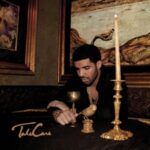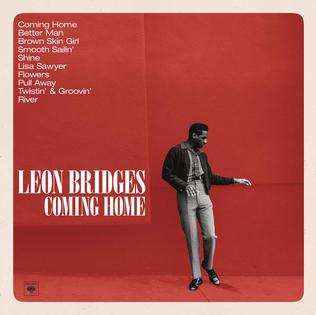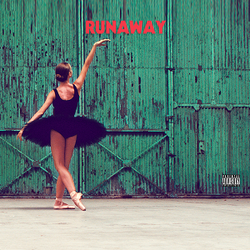 2011 was a defining year for Drake, a moment when the Toronto rapper and singer solidified his position as one of the most influential voices in contemporary music. That year, he released his sophomore album Take Care, a sprawling, emotionally rich project that blurred the lines between hip-hop, R&B, and pop. The album’s title track, “Take Care,” featuring the ethereal vocals of Rihanna and sampling Jamie xx’s rendition of Gil Scott-Heron’s “I’ll Take Care of U,” quickly became an emblem of Drake’s unique ability to combine vulnerability, melody, and lyrical introspection. The song captures the essence of his artistry: a blend of intimacy, bravado, and raw honesty that resonates across emotional and generational boundaries.
2011 was a defining year for Drake, a moment when the Toronto rapper and singer solidified his position as one of the most influential voices in contemporary music. That year, he released his sophomore album Take Care, a sprawling, emotionally rich project that blurred the lines between hip-hop, R&B, and pop. The album’s title track, “Take Care,” featuring the ethereal vocals of Rihanna and sampling Jamie xx’s rendition of Gil Scott-Heron’s “I’ll Take Care of U,” quickly became an emblem of Drake’s unique ability to combine vulnerability, melody, and lyrical introspection. The song captures the essence of his artistry: a blend of intimacy, bravado, and raw honesty that resonates across emotional and generational boundaries.
“Take Care” stands out not only for its musicality but for its narrative depth. It’s a meditation on love, heartbreak, and the tension between desire and self-preservation. Drake’s lyrics explore the complexities of emotional connection, offering reassurance while simultaneously acknowledging the insecurities that come with intimacy. Rihanna’s hauntingly delicate chorus elevates the song, creating a dialogue between two perspectives that amplifies the emotional stakes. The combination of their voices, layered over a lush, minimalist beat, produces a haunting, cinematic soundscape that invites the listener into Drake’s internal world.
The song’s impact is both immediate and enduring. While it enjoyed commercial success upon release, it also became a cultural touchstone for a generation of listeners navigating the complexities of modern relationships. Its fusion of hip-hop and R&B, combined with introspective lyricism and compelling vocal interplay, set a template for countless artists to follow. “Take Care” is not just a song; it’s a sonic experience that balances vulnerability, power, and artistry with effortless precision.
Crafting the Soundscape
“Take Care” exemplifies Drake’s mastery of mood and atmosphere. The production, handled by Jamie xx, Noah “40” Shebib, and other collaborators, is sparse yet profoundly effective. A deep, resonant bass anchors the track, providing a subtle pulse that drives the emotional undercurrent without overwhelming the vocals. The percussion is understated, employing soft hi-hats and snare hits that accentuate rather than dominate the rhythm. Atmospheric synths and ambient textures fill the sonic space, creating a sense of spacious intimacy that mirrors the song’s lyrical themes of vulnerability and care.
Drake’s vocal delivery is central to the song’s appeal. His voice alternates between rap-like cadence and melodic croon, navigating a fine line between confessional intimacy and rhythmic flow. The restrained delivery enhances the emotional resonance of the lyrics, allowing the listener to feel both the vulnerability and the quiet confidence embedded in each line. Rihanna’s vocals serve as a haunting counterpoint, ethereal and emotive, adding an additional layer of depth. Together, their voices create a dialogue that transforms the song into a narrative about trust, reassurance, and the complexities of emotional reciprocity.
The sample of Jamie xx’s production, derived from Gil Scott-Heron’s “I’ll Take Care of U,” adds historical and musical depth. It bridges generations, connecting Drake’s contemporary exploration of emotional vulnerability with the soulful, socially aware tradition of Scott-Heron’s work. The integration of the sample is seamless, providing both melodic and thematic grounding while allowing Drake and Rihanna to expand upon its emotional narrative.
Lyrics and Emotional Narrative
The lyrics of “Take Care” exemplify Drake’s talent for blending relatability with poetic insight. Lines like:
“If you let me, here’s what I’ll do / I’ll take care of you”
…serve as both a reassurance and a subtle acknowledgment of emotional complexity. The song examines the paradox of care: the desire to protect and nurture someone while grappling with personal insecurities and relational tension. Drake’s introspection and honesty make the narrative feel genuine and uncontrived, creating a sense of emotional realism that resonates deeply with listeners.
Throughout the song, there’s an ongoing interplay between vulnerability and confidence. Drake acknowledges his flaws and emotional needs while simultaneously offering support and commitment. This balance contributes to the song’s lasting appeal, reflecting the nuanced reality of human relationships. The lyrical honesty is a hallmark of Drake’s style, distinguishing him from many contemporaries who favor bravado over introspection.
Rihanna’s chorus complements this introspection perfectly:
“I know you’ve been hurt by someone else / I can tell by the way you carry yourself”
Her lines offer both empathy and reassurance, framing the song as a dialogue rather than a monologue. The interplay between the two perspectives adds complexity and texture, turning a simple message of care into a multi-dimensional exploration of trust, love, and emotional repair.
Production and Musical Innovation
“Take Care” showcases Drake’s unique approach to production and genre fusion. The song straddles hip-hop and R&B, incorporating minimalist beats and ambient textures while maintaining melodic accessibility. This synthesis allows Drake to explore lyrical intimacy without sacrificing musical sophistication, creating a soundscape that is both contemporary and timeless.
The production’s subtlety is one of its greatest strengths. Rather than relying on overtly dramatic instrumentation, the song achieves emotional depth through restraint. Sparse percussion, ambient synth pads, and carefully placed effects create a sense of space, allowing the vocals and lyrics to dominate. This approach also highlights Drake’s skill as a storyteller, as every pause, breath, and melodic inflection carries meaning.
Jamie xx’s influence is evident in the song’s ethereal textures and rhythmic subtlety. His background in electronic and experimental music contributes to the song’s spacious, immersive quality, which contrasts with traditional hip-hop’s emphasis on heavy beats and aggressive production. The result is a song that feels simultaneously intimate and expansive, inviting listeners into Drake’s emotional landscape.
Cultural Impact
Upon its release, “Take Care” resonated with audiences worldwide, topping charts and becoming a mainstay on radio and streaming platforms. Its impact extended beyond commercial success; it shaped the trajectory of hip-hop and R&B in the 2010s, influencing the sound and thematic approach of countless artists. Drake’s exploration of vulnerability, emotional complexity, and relational nuance set a new standard for lyrical content in mainstream hip-hop, encouraging other artists to embrace introspection alongside rhythm and melody.
The song also solidified Rihanna’s role as a collaborator capable of enhancing and elevating narrative depth. Her contribution transformed “Take Care” into a duet that feels like an intimate conversation, offering multiple perspectives on care, trust, and emotional intimacy. This collaborative approach has become a model for contemporary artists seeking to blend narrative and vocal interplay effectively.
Moreover, “Take Care” became an anthem for listeners navigating complex relationships, personal insecurities, and the challenges of emotional vulnerability. Its themes of reassurance, empathy, and relational commitment resonated widely, contributing to Drake’s reputation as an artist who speaks to the emotional realities of his generation.
Influence on Contemporary Music
“Take Care” has left a lasting imprint on the music industry. Its fusion of hip-hop and R&B, coupled with introspective lyricism and collaborative vocal interplay, influenced a generation of artists including The Weeknd, Frank Ocean, and Jhené Aiko. These artists have carried forward Drake’s emphasis on emotional honesty, ambient production, and melodic experimentation, demonstrating the song’s enduring relevance.
The track also contributed to the evolution of hip-hop as a genre capable of exploring emotional vulnerability without sacrificing commercial appeal. Drake’s approach in “Take Care” demonstrated that hip-hop could be reflective, intimate, and musically sophisticated, inspiring a wave of artists to embrace similar themes and production styles.
Furthermore, the song’s production techniques—ambient textures, minimalist percussion, and spacious mixing—have become hallmarks of contemporary R&B and hip-hop. Producers and artists continue to draw on the sonic palette established in “Take Care,” demonstrating its influence on modern music aesthetics.
Enduring Appeal
Over a decade after its release, “Take Care” remains a defining track in Drake’s catalog. Its emotional resonance, sophisticated production, and compelling vocal interplay continue to captivate listeners, affirming its status as a modern classic. The song’s themes of vulnerability, empathy, and emotional complexity remain universally relatable, ensuring its continued relevance across generations.
The track’s combination of intimacy and sonic sophistication creates a listening experience that is immersive, emotive, and enduring. It demonstrates Drake’s ability to craft songs that are both deeply personal and widely resonant, balancing narrative honesty with musical innovation.
Why “Take Care” Matters
“Take Care” matters because it represents a convergence of artistry, emotional depth, and cultural impact. It exemplifies Drake’s ability to navigate complex emotional landscapes while maintaining musical accessibility and commercial appeal. The song also highlights the power of collaboration, with Rihanna’s haunting vocals amplifying the narrative and adding depth to the lyrical dialogue.
Its influence extends beyond Drake’s career, shaping the sound and thematic approach of contemporary hip-hop and R&B. The song’s emphasis on vulnerability, introspection, and relational nuance has inspired countless artists to explore similar themes, contributing to the evolution of modern music.
Moreover, “Take Care” underscores the importance of emotional honesty in popular music. In a landscape often dominated by bravado and superficiality, Drake’s willingness to explore vulnerability and relational complexity set a new standard for authenticity and resonance in mainstream music.
Conclusion
Drake’s “Take Care,” released in 2011, is more than a single from a seminal album—it is a masterclass in emotional storytelling, sonic innovation, and collaborative artistry. Its lush production, introspective lyrics, and haunting vocal interplay create a timeless listening experience that continues to resonate with audiences worldwide. The song exemplifies Drake’s unique ability to blend vulnerability, confidence, and musical sophistication, establishing a benchmark for contemporary hip-hop and R&B.
Over a decade later, “Take Care” endures as a touchstone for artists and listeners alike, a reminder that popular music can be deeply emotive, musically inventive, and culturally significant simultaneously. It is a song that speaks to the complexities of human connection, the necessity of care, and the power of music to capture the emotional nuances of life. In every note, every breath, and every vocal inflection, Drake and Rihanna offer listeners an intimate, cinematic journey that remains as compelling today as it was upon release.
“Take Care” is not just a song—it is a statement of empathy, artistry, and emotional depth, securing its place as one of the most important and enduring tracks of the 2010s.


